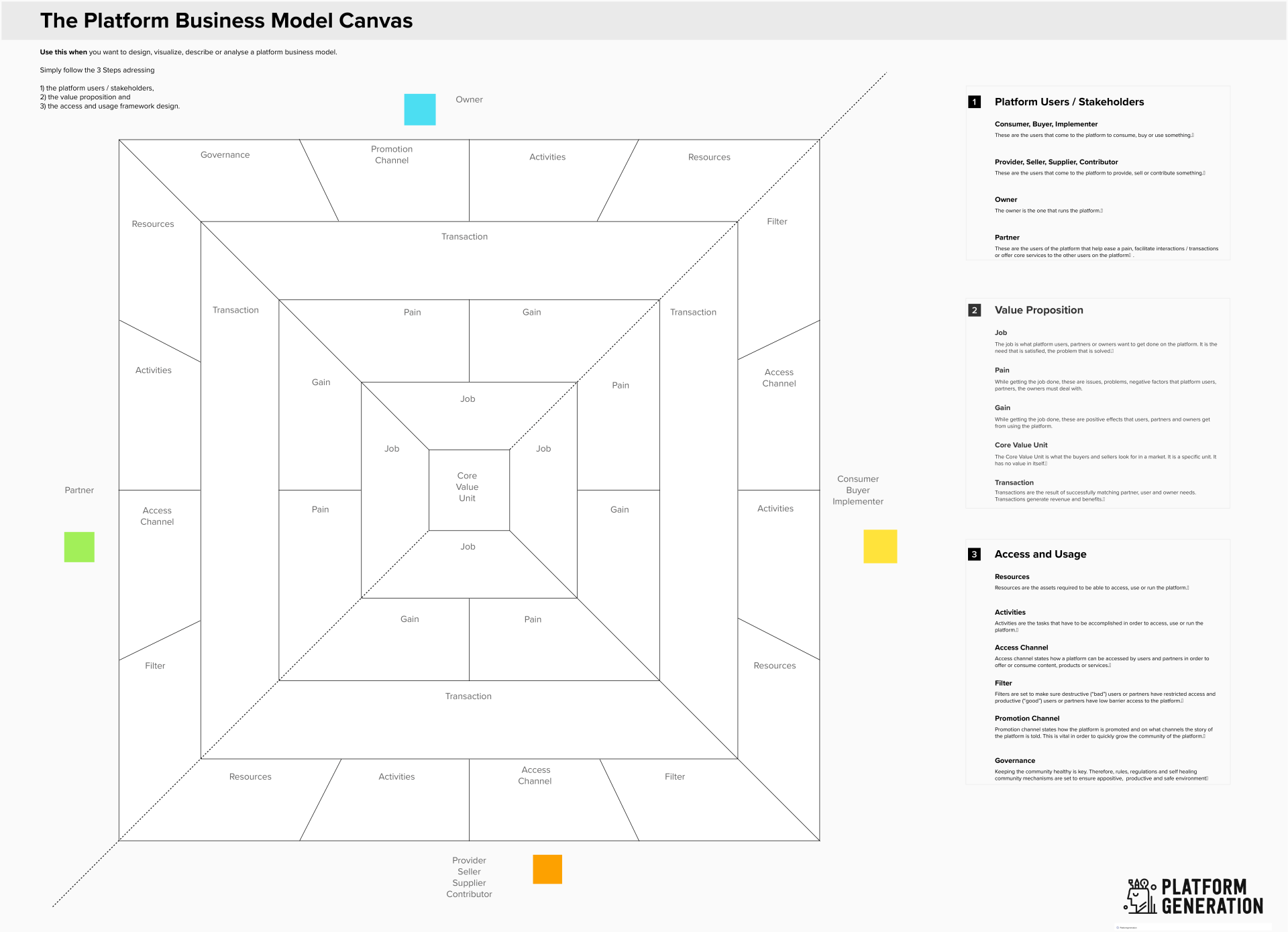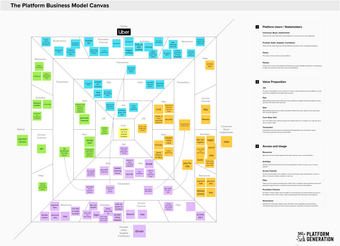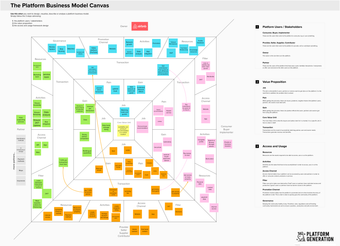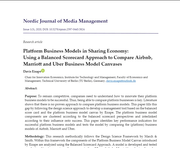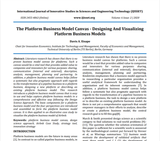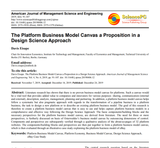FREE White Paper on
"FortisBC Energy Exchange"
White Paper on platform business models, data governance, and FortisBC’s path from linear utility to participatory energy.
- What’s inside: accessible PBMC, 6-step value flywheel, embedded data-value governance.
- Who it’s for: utility leaders, regulators, cities, DER vendors, investors.
- Why now: decarbonization, growth, risk = new orchestration.
About the Book-Project
What if you could design sustainable platform businesses that connect people and scale value for everyone involved?
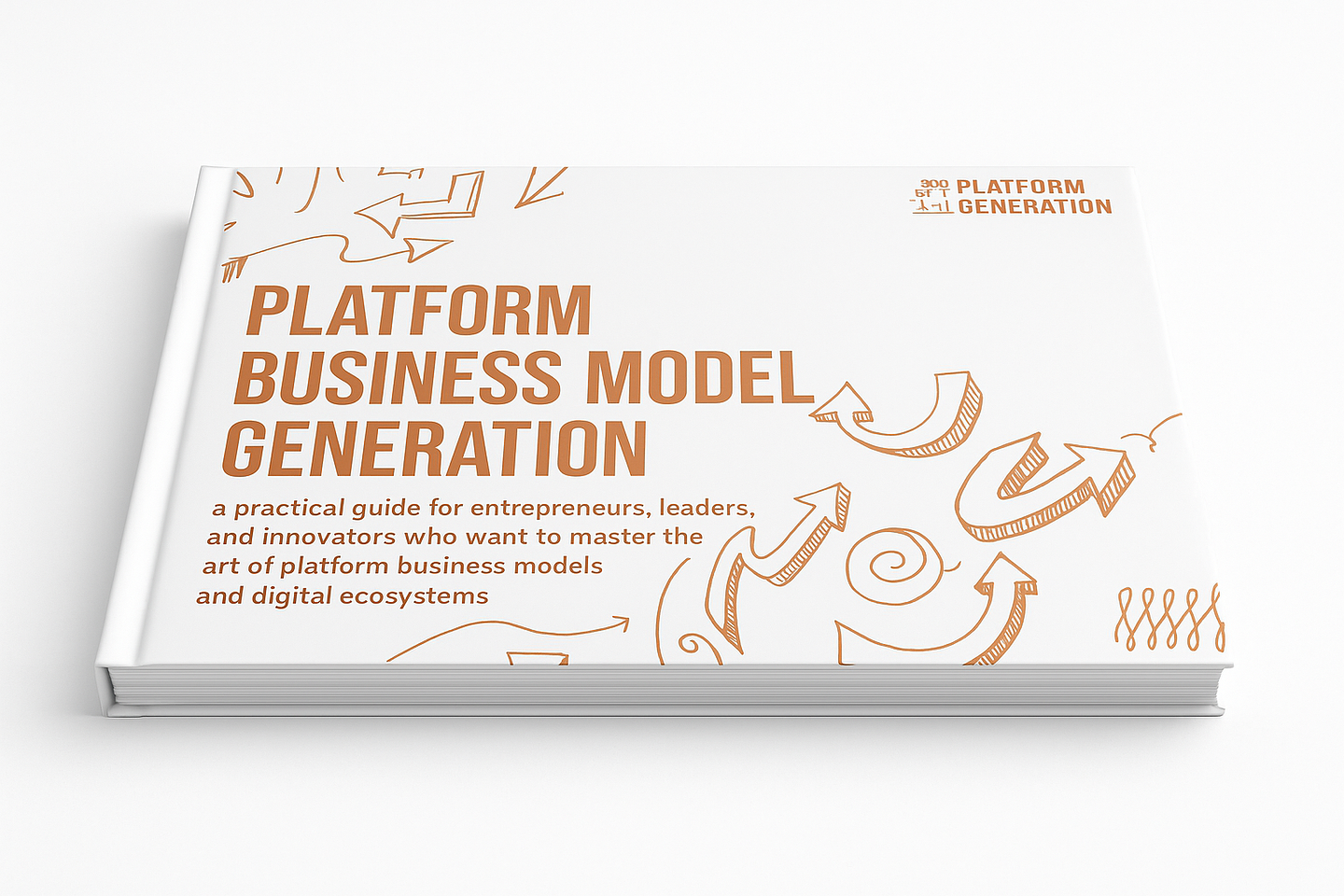
Platform Generation is a practical guide for entrepreneurs, leaders, and innovators who want to master the art of platform business models and digital ecosystems. This book goes beyond theory, offering actionable tools, fresh frameworks, and real-world examples to help you build, launch, and grow platform ventures that create genuine connection and mutual benefit.
You'll discover how to:
- Move from linear “pipeline” thinking to multi-sided platforms
- Harness the Platform Business Model Canvas for clarity and strategic direction
- Overcome common pitfalls and unlock the hidden dynamics that make platforms thrive
- Bridge communities, foster innovation, and scale impact—whether you’re a founder, intrapreneur, or public sector leade
The Canvas
Create your platform business model in three steps with the Platform Business Model Canvas:
- In the first step, the users and stakeholders are identified.
- In the second step, the value proposition (the value proposition) including transactions is considered.
- In the third step, the access and usage framework conditions are defined.
Examples
Research
Platform Business Models in Sharing Economy: Using a Balanced Scorecard Approach to Compare Airbnb, Marriott and Uber Business Model Canvases
1. Sept. 2020, Nordic Journal of Media Management
The Platform Business Model Canvas - Designing And Visualizing Platform Business Models
22. Feb. 2020, International Journal of Innovative Studies in Sciences and Engineering Technology (IJISSET) - Volume 6, Issue 2
The Platform Business Model Canvas a Proposition in a Design Science Approach
24. Dez. 2019, American Journal of Management Science and Engineering (Volume 4, Issue 6, Pages: 91-107)
Mission
With more than 10 years of experience in the field of entrepreneurship, business development and strategy development in medium-sized companies and corporations, I have seen the rise of a new generation of business models up close: the platform generation.
This new era of business models requires new strategies and approaches. Conventional business models, so-called pipeline business models, are faced with the challenge of adapting to an increasingly digital world and rapidly changing ecosystems. In order to remain competitive, every company has to deal intensively with the potential of a platform business model in its business area. Not because they all have to become digital platforms, but rather to develop a strategy for how they can position their companies in a platform economy. Small, medium and large companies have the opportunity to create their own platforms, to enter into partnerships to create platforms together to create, or figure out how to use other platforms to their advantage. Therefore, a platform strategy is essential in this generation.
This is where the Platform Business Model Canvas takes the stage. Inspired by Osterwalder's Business Model Canvas and the book "Platform Revolution", it was developed and presented to the international scientific community for the first time in 2019. The canvas is specifically geared towards ecosystems and platforms, it is easy to use and is aimed at entrepreneurs, managers, consultants, designers and investors alike. Now companies and founders can easily and collaboratively develop digital platform business models, visualize business ecosystems and prepare the transformation into a digital platform-based business model.
About

Dr. Davis Adedayo Eisape
Founder of the Platform Business Model Canvas
Davis A. Eisape studied industrial engineering at the TU Berlin. During his professional career as a product manager, business developer, strategy expert, product owner and consultant at Bundesdruckerei, Volkswagen, Deutsche Bahn and DIN eV, he encountered challenges in designing successful platform business models. He developed the Platform Business Model Canvas, which is used in several bachelor and master theses as well as in industry. He is currently head of the "Cities and Regions" department at Ramboll Management Consulting, Germany, where he works on smart city / mobility strategies and - Developed concepts for the public and private sector. As a doctoral student, he lectures and researches at the Chair of Innovation Economics at the TU Berlin.



